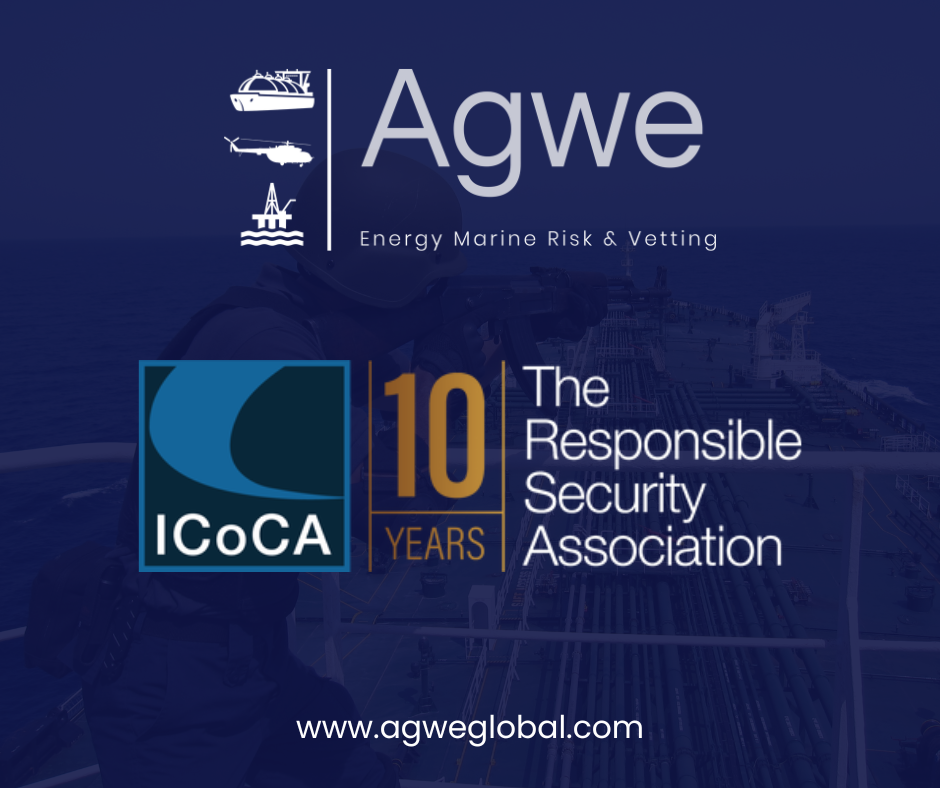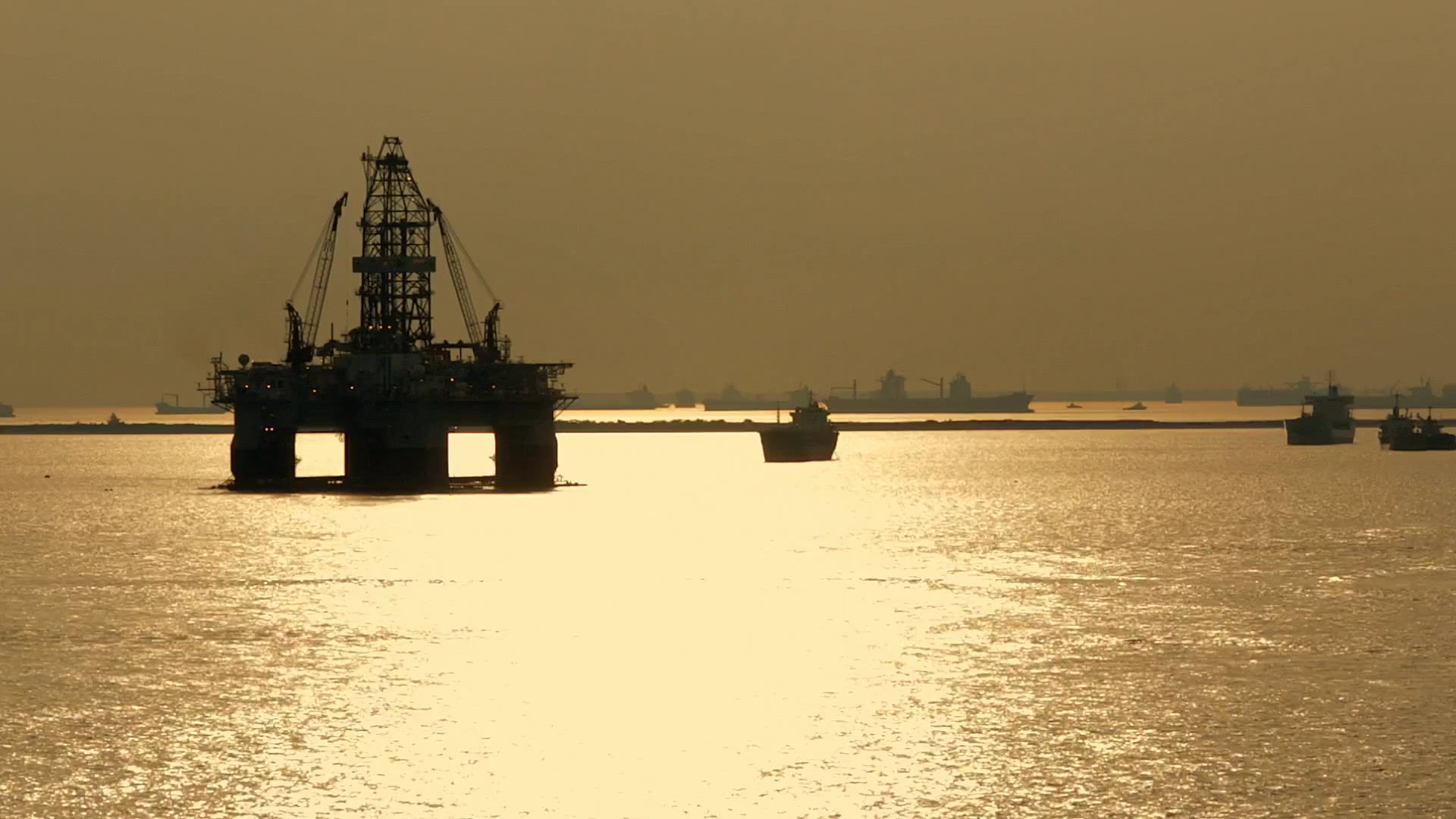Agwe attains ICoCA Certification
- Agwe Global

- Sep 7, 2023
- 5 min read

Agwe joined the International Code of Conduct for Private Security Service Providers’ Association (ICoCA) in October 2022. In January of this year, having been awarded ISO 18788, Agwe attained ICoCA Certification. So why did Agwe join ICoCA and what does the Association offer? We spoke to Tom Cockburn, Operations Director at Agwe and Tom Mather, Compliance Manager at ICoCA to get their take on Agwe’s pursuit of higher standards.
So Tom Cockburn, why did Agwe choose to join ICoCA?
Tom Cockburn: Agwe’s philosophy is about continual improvement and raising our operating
standards. We know that doing business responsibly, in the end, also helps our bottom line. Our clients come back because we do a good job, respecting the rights of our staff and the communities in which we operate. So our culture was already aligned with ICoCA. We joined because we wanted help raising our game even further, and we wanted recognition for doing it. Having access to the resources ICoCA offers, such as the online trainings, is a real, tangible benefit for us. Being certified also means that we’re held to our word, through third party verification we’re able to demonstrate that we truly walk the talk and operate responsibly.
Of course, ICoCA is a voluntary industry scheme. Regulation is just around the corner. We’re
watching developments in different jurisdictions, but particularly in the EU. The EU Corporate
Sustainability Due Diligence Directive (CSDDD) that’s being negotiated right now means Mandatory Human Rights Due Diligence on supply chains isn’t way out on the horizon, it’s just around the corner. Our clients are going to have to demonstrate human rights due diligence is being conducted on their suppliers. By joining ICoCA, we believe we have become a much more attractive partner for large multi-national corporations who will ultimately be subject to this regulation once it is enacted into law by EU Member States.
Tom Mather, can you tell us about ICoCA and how it conducts human rights due diligence on its Members.
ICoCA marks its ten-year anniversary this year, though the International Code of Conduct (the Code) itself, predates ICoCA by a few years. The Code is our foundational document, it’s based on existing human rights treaties and international humanitarian law. It lays out what is expected of private security companies, both in terms of how their personnel should behave, and commitments made about how the company is managed and governed, for example, how personnel are vetted, selected and trained. In short, the Code details human rights best practice in private security. The Association (ICoCA), was formed as the governance and oversight mechanism of the Code. It’s the Association that conducts human rights due diligence on its Member and Affiliate companies. Due diligence is a continual process. For us it starts when a company approaches us to join. We check that their policies and practices are aligned with the Code and if elements aren’t matching up, then we work with the company to align them. For example, if a company doesn’t have a grievance mechanism, this is something we require them to have and so we’d work with them to put one in place in order that they may join. We assist companies in meeting their human rights responsibilities.
We’ve developed a robust set of indicators, based on the principles laid out in the Code and we assess our Member and Affiliate companies on an annual basis against these indicators. If companies fail to submit their annual self-assessment, then they’re kicked out, every year this happens to one or two. This is because ongoing monitoring is a crucial part of our work. I should say that ICoCA covers both land and maritime security, and some of our indicators are more important in some contexts, some less important in others. We work with companies to build their capacity in areas where they need help. Our training courses, often based on in-depth guidance we have developed, are available, free of charge, to all our Member and Affiliate companies, in multiple languages. The first guidance and training we produced was on the prevention of sexual exploitation and abuse, and our most recent offering is on the use of force. We endeavour to visit our companies, wherever they have operations, to both provide advice and support as well as gather best practice, but also to
check-up on their operations. We also have a complaints function, so we accept complaints from anyone concerning Code-related violations against any of our Member or Affiliate companies and we take appropriate action on a case-by-case basis.
What are some of the biggest compliance challenges you see?
To some extent that depends on where you look, but one issue that’s prevalent across many
markets relates to the working conditions of private security personnel themselves. The security industry is fiercely competitive with very slim margins. Companies can be backed into a corner by some clients who aren’t prepared to pay a fair price for the service they expect. Guards are often contracted to work long-shifts (12 hours being an industry standard) with hardly any training for very little pay. When security personnel are treated poorly, they themselves can go on and treat people poorly, so we see cascading human rights abuses taking place. In the maritime sector compliance is especially challenging given access issues with ships out at sea for long periods of time. We know working conditions of security personnel in the maritime space can be particularly challenging and these were only exacerbated during the pandemic.
Tom Cockburn, does this tally with your own experience, what are some of the human rights risks you see in the maritime security space?
It certainly did, back when floating armouries first appeared, they were often over filled with
PCASPs, not seldom sleeping on Peli cases on deck, more passengers than Life Saving Appliances, there was always enough food but more often than not, insufficient water for all men on board to shower once a day. Between 2011 and 2014 things did improve substantially. During this period there was a transition from utilising primarily European PCASPs to Asian PCASPs, this was caused by the prices being driven down at such a rate that it even caused one major PMSC to collapse leaving PCASPs spread all over the Indian Ocean with no way of getting home. On board client vessels, PCASPs are in my experience well respected and well treated, their duty rotations are very humane with 4 hours on duty and 8 hours off, that being said, they often go long periods of time submersed in the culture of the vessels crew, sometimes not speaking the language with no means of having the
possibility of calling home to alleviate the stress this can place on a persons state of mind.
PMSCs have very strict behavioural guidelines but these are only as strong as the Team Leader’s willingness and ability to ensure they are followed.
Regarding the Pandemic, this was indeed a very challenging period with PCASPs often being left on floating armouries or in foreign countries for long periods of time, even country managers being so to speak “Trapped” in foreign countries with no way of returning home as there were just no flights.
So Tom Mather, what advice would you have for shipping companies contracting the services of private security at sea?
For shipping companies, or anyone else who’s contracting the services of private security at sea, my advice would be to first look and see whether they are Members or Affiliates of ICoCA. Also, don’t take their word for it, check with us. Unfortunately, all too often companies will claim to be ICoCA Members, they’ll even put our logo on their website, but they’re not known to us. There’s an up-to date Member list on our website, so use this. If you’re using a company that hasn’t joined, then encourage them to do so. Once they have joined they’ll get access to all our resources, free-of charge. Our Member companies do pay annual dues to the Association, which is calculated based on their revenue. We work closely with a growing group of clients of private security companies who can join the Association as Observers, so if you’d like to learn more about this, don’t hesitate to reach out: secretariat@icoca.ch





Comments